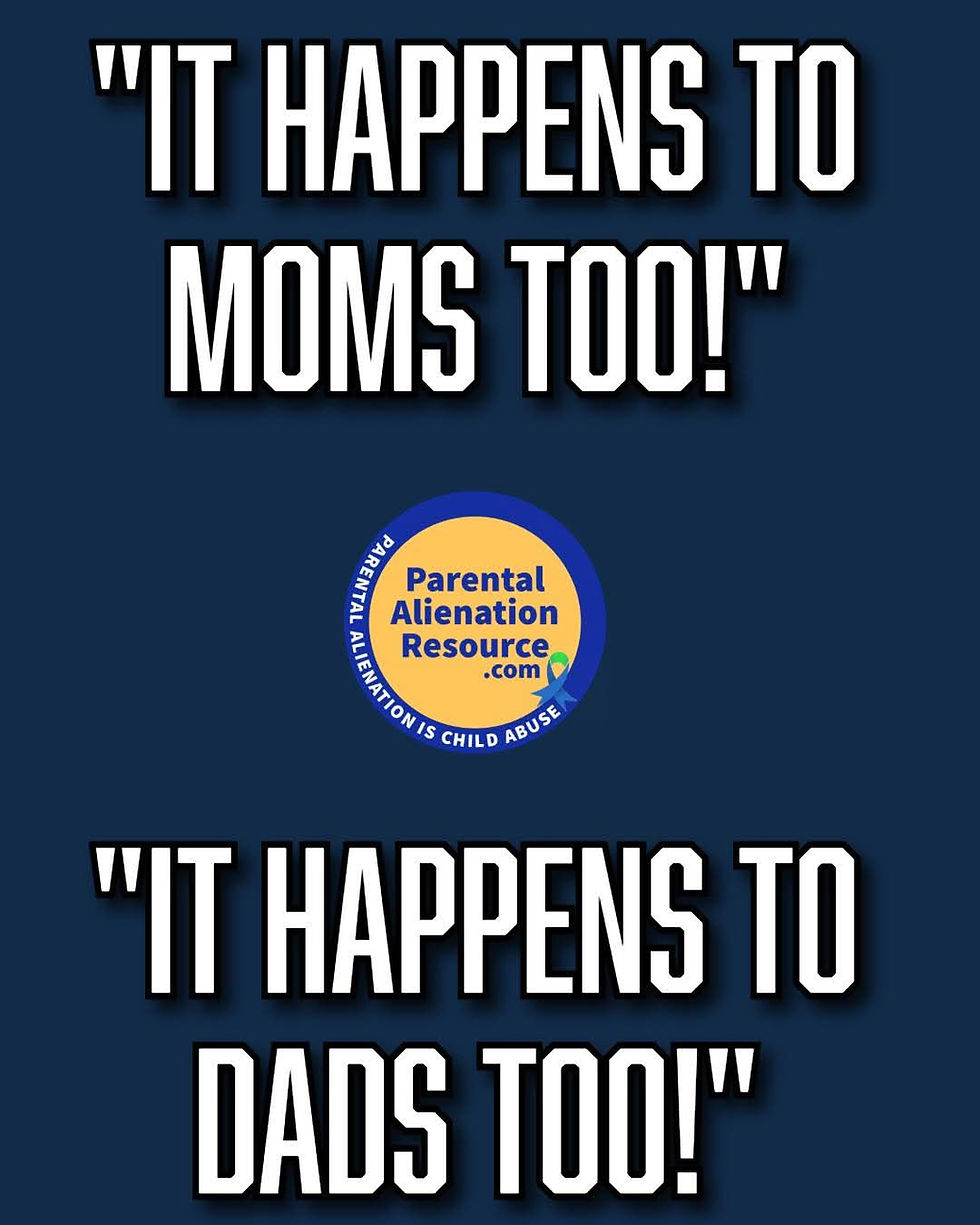Why Do Parents Alienate?
- Parental Alienation Resource

- Aug 6, 2023
- 2 min read
Updated: Aug 15, 2023

While it is certainly distressing, there are instances where people may attempt to alienate their children from the other parent or family members. Here are ten possible reasons for this behavior:
Revenge or Retaliation: One parent may try to alienate the child as an act of revenge against the other parent, stemming from anger, resentment, or perceived wrongdoings.
Control and Power: Alienation can be a way for one parent to exert control over the child and manipulate their feelings and loyalties.
Insecurity and Jealousy: A parent might feel threatened by the bond their child has with the other parent or family members, leading them to try and break that bond through alienation.
Fear of Losing Custody: In contentious custody battles, some parents may engage in parental alienation to undermine the other parent's credibility or suitability, hoping to gain sole custody.
Emotional Manipulation: Using tactics such as guilt-tripping or emotional blackmail, a parent may attempt to sway the child's loyalty and align them solely with themselves.
Isolation: By alienating the child from the other parent or family members, one parent may seek to isolate the child and have exclusive control over their life and decisions.
Parental Influence: Sometimes parents who have experienced their own trauma or negative experiences with the other parent may unconsciously project their biases and negatively influence the child's perception of the other parent.
Lack of Boundaries: When a parent has poor boundaries or enmeshment issues, they may view the child as an extension of themselves. Alienation can be an attempt to maintain that enmeshed dynamic.
Mental Health Issues: Certain mental health conditions, such as personality disorders or unresolved trauma, can fuel alienating behaviors as a misguided coping mechanism.
Lack of Awareness or Education: Some parents may not fully comprehend the harmful impact of alienation, and their actions may be driven by ignorance rather than malicious intent.
It is important to remember that parental alienation can have severe negative consequences on the child's well-being and long-term relationships.









Comments